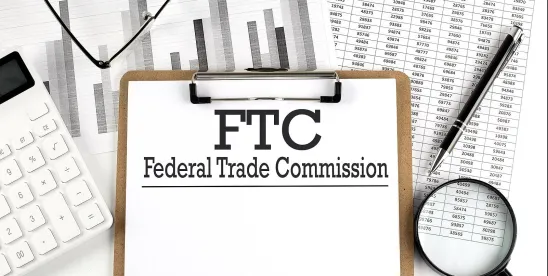During this webinar, Paul Hughes, Brian Mead and Katharine O’Connor shed light on pressing questions about the Federal Trade Commission’s (FTC) rule preventing all employers from using noncompete clauses. They explained the impact of the Final Rule on current noncompete agreements, examined the legal issues around enforcing a noncompete ban and ensuing litigation, and outlined what employers should do next.
Top takeaways included:
- The Final Rule has been published in the Federal Register and, absent an injunction issued by a federal court barring the Final Rule, will go into effect on September 4, 2024. Prior to the effective date, employers are required to provide notice (via hand delivery, mail to last known address, email or text message) to impacted employees and former employees that their noncompete agreements will be rendered unenforceable. The Final Rule applies to noncompete agreements with non-senior executives and “senior executives” (explained further in #3) and in limited liability company or partnership agreements.
- All eyes are on Ryan, LLC v. Federal Trade Commission, a lawsuit pending in the US District Court for the Northern District of Texas asking the court to vacate the Final Rule. The court granted the US Chamber of Commerce’s (the Chamber) motion to join that lawsuit, and the Chamber’s motion to stay the effective date of the Final Rule and preliminarily enjoin the FTC’s enforcement – filed on May 10, 2024 – is currently pending. It is expected that the US Court of Appeals for the Fifth Circuit and the US Supreme Court will review the district court’s decision(s) prior to the Final Rule going into effect. Employers should monitor this and other legal challenges to assess any changes to the effective date of the Final Rule.
- There are two limited exceptions to the Final Rule’s broad prohibition against worker noncompete agreements. One, existing noncompete agreements with “senior executives” who are in “policy-making positions” related to an entire business enterprise (i.e., not just parts of a business) and earn more than $151,164 will not be rendered unenforceable. (For more information on the “senior executive” definition, please review our On the Subject.) However, after the effective date, entering into new noncompete agreements with “senior executives” will be prohibited. Given this timing, employers should strongly consider reviewing and implementing noncompete agreements with “senior executives” prior to the effective date. Two, the Final Rule will not render unenforceable or prohibit noncompete agreements made as part of a bona fide sale of a business.
- Assuming the Final Rule does go into effect, employers should start looking into and preparing noncompete agreement alternatives. Consider how you can put in place nondisclosure agreements, retention and/or training repayment agreements, term agreements, fixed duration employment contracts, incentive equity awards and “garden-leave” arrangements (which are likely permissible because such arrangements don’t impose post-employment restrictions on employees). Companies can, in theory, still use customer and employee nonsolicitation agreements, but they should ensure that such agreements are enforceable in the states in which the business operates.




 />i
/>i
